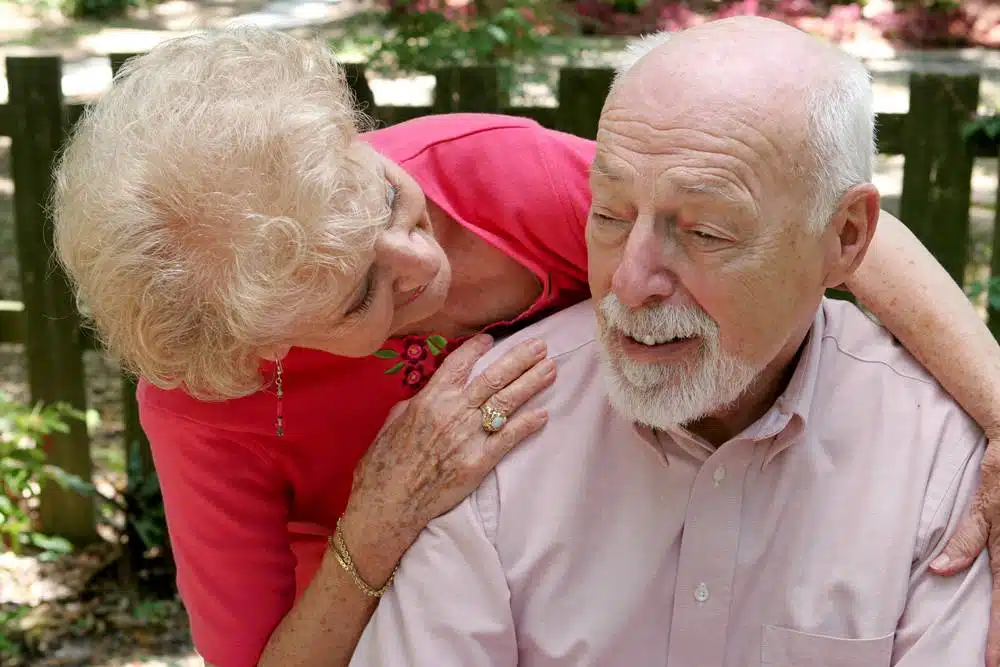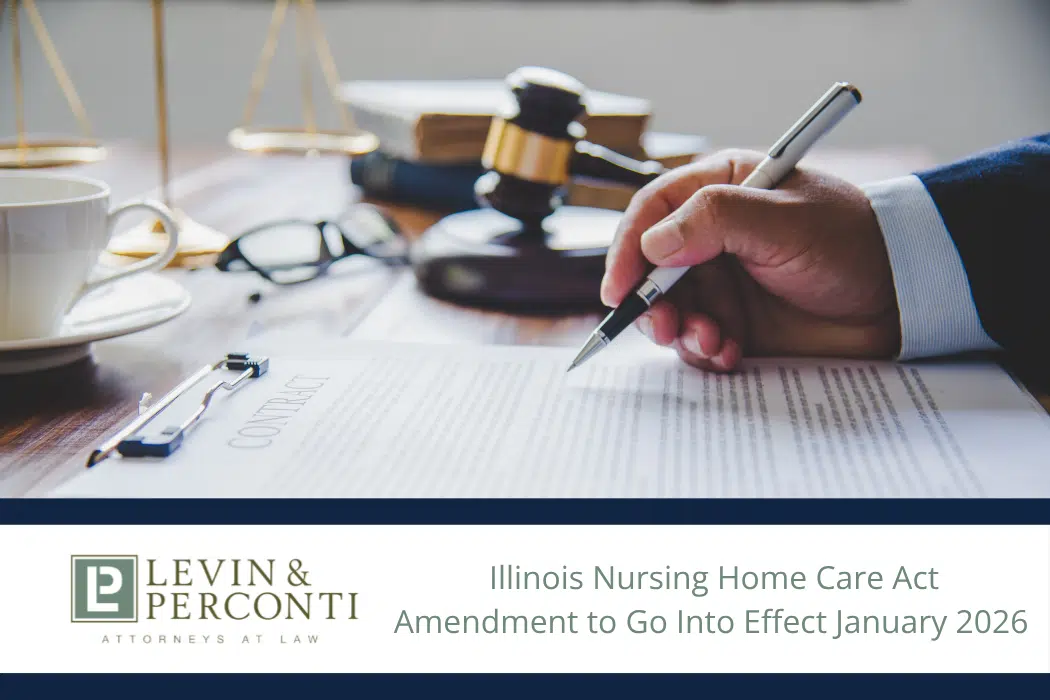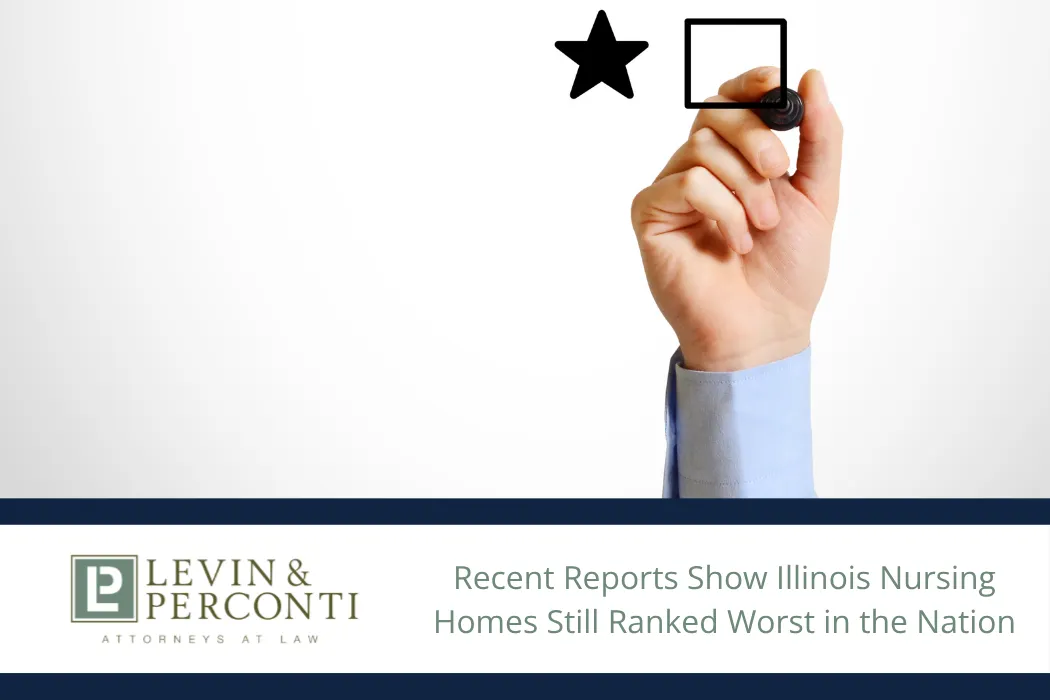June is Alzheimer’s and Brain Awareness Month, Join Levin & Perconti by Going Purple
Today, more than 6 million Americans are living with Alzheimer’s and other dementias. In Illinois, more than 230,000 are battling the disease. When someone is diagnosed with Alzheimer’s Disease, they will require more care, patience, and support as they grow older. The emotional burden and financial costs are overwhelming on those diagnosed, their caregivers, long-term care workers, and even the nation’s health care system. The Alzheimer’s Association reports that in 2021, Alzheimer’s and other dementias will cost the nation $355 billion. And by 2050, costs could rise as high as $1.1 trillion.
As much as 75% of those diagnosed with Alzheimer’s will eventually become entirely dependent on someone else to care for them. At times, this support can only be found in a facility such as a nursing home or memory care center. Unfortunately, our experience has shown us that Alzheimer’s residents can be too easily ignored, abused, or neglected within these homes.
Each June, Levin & Perconti joins the Alzheimer’s Association in going purple and raising awareness during Alzheimer’s and Brain Awareness Month. The more people who know about Alzheimer’s and how our work as nursing home abuse and neglect attorneys protects elders with it, the more we can help. Also, if you are interested in supporting this message, you can participate at home, online or in-person, and visit www.alz.org for ideas on how to engage family and friends in The Longest Day celebration on June 20, 2021.
Some Nursing Homes Fail to Recognize Dementia in Many Forms
Many people wonder what the difference is between Alzheimer’s disease and dementia. The Alzheimer’s Association defines dementia as a broad term for a particular group of symptoms. The characteristic symptoms of dementia are difficulties with memory, language, problem-solving, and other thinking skills that affect a person’s ability to perform everyday activities. Dementia has many causes, and Alzheimer’s disease is the most common cause of it.
Sadly, dementia denial from nursing home owners is very real even though the rate in cases is becoming more prevalent and expected to increase in Illinois by nearly 13% thru 2025. But too many owners and administrators find it more manageable and cost-effective to have staff ignore the warning signs of declining cognitive abilities rather than focus on providing additional support or accept the demand to hire more care workers. Dementia symptoms are often missed when overworked, and poorly resourced care teams are not trained to evaluate struggling residents who require extra supervision and management of their daily activities, medications, and financial needs.
During Your Next Nursing Home Visit, Watch for These Signs of Dementia
Our nursing home abuse and neglect lawyers always encourage the family and friends of those residing in skilled nursing facilities to prioritize visiting frequently and unexpectedly check in on those responsible for providing care, especially now that COVID-19 visitation standards are changing. Even a weekly call or stop may be enough to ensure the quality of the services you expect for your mother, father, sister, or grandparent is being met. During this time, you may also identify any new challenges or concerns your loved one’s care team should be aware of.
And because family members and friends are often the first to request help after noticing a loved one’s behavioral changes during visits, immediately report any concerning events, such as those listed below, to the nursing director.
- Early-Stage Memory Loss: One of the most common signs of dementia, especially in the early stage, is forgetting important dates or events, asking the same questions repeatedly, and increasingly relying on others to recall facts, people, or routines.
- Inability to Concentrate and Conversate: Some people living with dementia may experience changes in their ability to concentrate and follow a plan or follow a conversation. This includes confusion with writing or following, or joining a discussion. They may struggle with vocabulary, have trouble naming a familiar object, or use the wrong name (e.g., calling a “brush” a “fork”).
- Falls: People with dementia have an increased risk of falls and hip fractures. Falls can also happen when staff is not following protocol during a transfer, whether manually or with a lifting device’s assistance. Severe bone fractures and traumatic brain injuries are common fall injuries that lead to a decline in a person’s health and ultimately contribute to around 20% of all nursing home resident deaths each year.
- Wandering and Elopement: Six out of 10 people with dementia will wander and aimlessly move about within the facility or grounds without regard for their safety. The National Council of Certified Dementia Practitioners has identified several types of wandering, such as environmentally cued wandering, recreational wandering, restless wandering, purposeful wandering, fantasy, reminiscent wandering, and elopement. Elopement is the most dangerous type of wandering and occurs when a patient attempts to leave the nursing home altogether and wander outside. Residents can be seriously hurt or killed during these preventable events.
- Growing Difficulty With Simple Tasks: As dementia progresses, the ability to perform daily tasks such as dressing, bathing, eating, socializing, or walking decreases. Sedentary behavior in nursing home residents is also associated with an increased risk of illness and death.
- General Confusion Over Appointments and Visits: People living with dementia can lose track of dates, seasons, and important events like holidays or scheduled visits with friends and family. And sometimes they have trouble understanding where they are, why they are there, or how they got there.
- Misplacing Items and Accusing Others of Stealing: They may lose things, put them in unusual places, or unable to go back over their steps to find them. Your loved one may accuse others of stealing or misplace vital information and personal items, especially as the disease progresses.
- Changes in Personality, Mood, and Sound Judgment: Individuals may experience changes in judgment or decision-making. For example, they may use poor discretion when dealing with money or pay less attention to eating and grooming. Mood and personality changes can happen to someone with early-stage Alzheimer’s or dementia. They can quickly become confused, suspicious, depressed, fearful, overly excited, or anxious – and just as easily upset even when visiting friends or family or care staff and doctors they once trusted.
Most Illinois nursing homes have fewer nurses and medical staff than they report. This leaves underqualified and stressed nursing assistants and personal aides with the 24-hour tasks to keep far too many patients’ dietary, hygiene, medication, and daily living needs met. Those who require extra care, such as dementia patients, are often first neglected. Older Black and Hispanic Americans are disproportionately more likely than older White Americans to have Alzheimer’s or other dementias.
Common Injuries Suffered by Assisted Living Residents with Alzheimer’s
People who have Alzheimer’s and other forms of dementia require significant amounts of care to thrive. Still, unfortunately, many will never receive the support and treatment they deserve because of an endemic lack of resources and funding, understaffing, and improper staff training. Chronic issues become magnified in these cases, often triggered by preventable injuries and sometimes even the death of an Alzheimer’s resident.
- antipsychotic medication abuse
- choking
- deadly infections
- dehydration
- fall injuries
- malnutrition
- medication errors
- painful bed sores
- verbal, physical, or sexual abuse
- wandering and elopement
Direct-care workers, such as aides and personal care attendants, provide most daily support to older adults battling Alzheimer’s. They may be responsible for bathing, feeding, medication administration, bathroom needs, dressing, housekeeping, food preparation, and other activities. These are all roles that nursing home workers, especially Illinois’ certified nursing assistants, feel can be too demanding due to support constraints created by administrators.
When an assisted living resident battling Alzheimer’s disease suffers a severe injury or even death because they did not receive the care and support they deserve, families have the right to take legal action to hold these facilities and workers accountable.
There Is No Cure for Alzheimer’s Disease, But You Can Provide Support
Remember, one in three seniors dies with Alzheimer’s or another dementia, and it kills more than breast cancer and prostate cancer combined. Yet, there is currently no cure for Alzheimer’s and no treatments for dementia that will modify the progression or prevent the death of around 4,000 Illinoisians each year. And while some drugs can help Alzheimer’s residents, they can also hinder activities or be overly prescribed. Some drugs also do not stop the disease from progressing, and unfortunately, they have led to fatal accidents in nursing homes due to the overmedicating of residents. Additionally, antipsychotics are associated with an increased risk of stroke and death in individuals with dementia.
Chicago Nursing Home Abuse and Neglect Attorneys at Levin & Perconti
For nearly three decades, we have successfully defended the rights of the elderly against negligent nursing homes. If someone you love is battling Alzheimer’s or other forms of dementia and have been neglected or injured as a result of poor care, please contact the Illinois nursing home abuse and neglect attorneys at Levin & Perconti. We can provide you with a free legal consultation at 312-332-2872 or toll-free at 877-374-1417.



